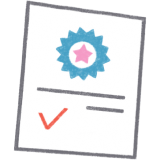Our Program
Learn more about our super-inclusive developmental day center, evidence-based curricula, and how Learning Together disrupts education inequities.
There’s a problem in education
The first five years of life are the most critical for a child’s cognitive, emotional, and social development. Yet, families are facing record inequalities as high-quality early education is becoming unaffordable and inaccessible. Children with disabilities, diverse racial/ethnic identities, and those from under-resourced families face additional risk of falling behind their peers while experiencing educational trauma from suspensions, expulsions, and segregated programs.
Learning Together is the only certified Developmental Day Center (DDC) in downtown Raleigh, and across the state, the number of DDCs has decreased from 31 to 16 since the start of 2020. Our center continues to combat systemic inequities that significantly contribute to the outcomes for our families and the overall community.
A Super-Inclusive Environment is Key
Learning Together’s “Super-Inclusive” learning environment aims to increase the accessibility of early education for underserved communities and enhance all students' developmental and academic outcomes.
On average, 90% of our students graduate to kindergarten on the “Standard Course of Study,” defined by the Wake County Public School System (WCPSS). This increases the likelihood students are placed in traditional classrooms instead of segregated special education programs. By layering support from teachers, staff, therapists, family advocates, and community partners – families are equipped with the knowledge and resources needed to enhance their child’s development.
Unity in Learning
We start with our inclusive classroom setting, where typically developing children learn side-by-side with children with developmental delays; children from private pay families learn alongside children receiving subsidies; and children from all races and ethnicities learn together.
Emotional & Academic Growth
Super-inclusive programming continues by incorporating a social-emotional development curriculum alongside our academic curriculum. To further our students' success, we provide them with the skills to improve their interpersonal relationships, manage their emotions, and learn self-regulating behavior.
Community Collaboration
The final piece of our super-inclusive programming focuses on engagement with families and the broader community. We understand that the success of our students depends not only on their abilities but also on the engagement of the adults in their lives and the support and understanding of the community as a whole.
Learning Together’s super-inclusive environment celebrates differences and delivers a truly authentic, inclusive learning experience.
Addressing inequities in early childhood education is critical to creating an anti-racist, anti-ableist, truly inclusive America.

Our commitment to educating the next generation
For 50+ years, Learning Together has pioneered inclusive education.
Our super-inclusive methods mandate that we expand access to equal and equitable high-quality Early Childhood Education to all children starting at 18-months of age. Our program is intentional and will demand equity at every level, by every person engaged in the delivery of education.
Learning Together believes that our super-inclusive mantra will be a catalyst for equity in education, in our community and the world.
Educational Program
Creative Curriculum
Learning Together uses The Creative Curriculum® which is research-based and supports the development of the whole child. High-quality, comprehensive resources empower our teachers to intentionally teach and care for our youngest learners during the most critical and formative years of development. It is designed to encourage growth in all areas of development for children with and without developmental delays. Areas include social/emotional skills, fine motor, early learning, self-help, gross motor, science, technology, math, and communication.
Teaching Strategies GOLD
Teaching Strategies GOLD is an online program that allows teachers to effectively track the progress of children over the course of the year. This allows us to follow children over several years to assess their progress and adjust teaching goals to meet their specific needs. Teaching Strategies GOLD® is inclusive of children with disabilities, children who are English-language learners and children who demonstrate competencies beyond typical developmental expectations.
Conscious Discipline
Learning Together adopted the Conscious Discipline methodology in 2021 to further support student’s Social-Emotional Learning (SEL). Conscious Discipline encompasses these four components, which are scientifically and practically designed for success:
- Conscious Discipline Brain State Model: Understanding how internal emotional states dictate our behavior.
- Seven Powers for Conscious Adults: Shift perceptions to see discipline encounters as opportunities to teach new skills.
- Creating the School Family: Building connections by creating a culture of compassion.
- Seven Skills of Discipline: Problem-solving with social-emotional learning.
TEACCH® Autism Program
Learning Together utilizes TEACCH Structured Teaching Strategies as a core framework for all classrooms. While the model has been at the forefront of working with children on the Autism Spectrum is also beneficial for all children through the use of the physical environment, schedules, and predictable routines. We add visual/structural supports to classroom activities to increase engagement and independence and clearly organize classroom spaces and teaching materials to reduce anxiety and increase appropriate behavior.
Providing a well-organized and structured classroom setting, with accommodations necessary for independence, children make gains in all areas of development (physical, social/emotional, cognitive, language, and math). Children moving into kindergarten will have the skills necessary to have better self-management, better social awareness, an increase in responsible decision-making skills, and greater social awareness.
Second Step
- Gain confidence
- Set goals
- Make better decisions
- Collaborate with others in work and play
- Navigate the world more effectively
